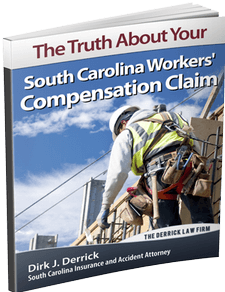Construction
The repeated use of power tools at close range can damage a construction worker’s hearing over time. In some cases, a nail or sliver of wood might enter a worker’s ear and pierce the eardrum.
Military
Gunfire, explosive devices, and the noise created by tanks and airplanes are not good for the hearing of military personnel.
Driving
The constant rumble of a diesel engine and road noise, in general, can cause hearing loss over time for commercial truckers. Competitive race car drivers and motorcyclists can also sustain hearing damage from loud engines.
Music
Listening to live music can easily cause hearing loss over a period of years. People working in the live music industry are at high risk for hearing damage.
Manufacturing
The sounds of machinery operating, forklifts running, and other loud noises in a factory make manufacturing work more likely than any other occupation to cause hearing loss.
Tinnitus Is Another Compensable Auditory Injury
In addition to losing their ability to hear, workers in the industries listed above frequently develop a condition called tinnitus, which is characterized by a constant ringing or buzzing in the ears. Tinnitus can interfere with your sleep and make it hard for you to differentiate between the internal ringing or buzzing and the external sounds that you want to hear. In some cases, hearing loss is correlated with an increased risk of heart disease. The Centers for Disease Control and Prevention (CDC) report that hearing loss accounts for more than 10% of all occupational diseases.
Accidental Injury vs. Occupational Disease
In some cases, hearing loss can result from a one-time work accident. A factory worker might be hit in the head by a falling object and suffer a brain injury that causes a loss of hearing. A sharp object could penetrate a construction worker’s eardrum and result in partial or total deafness. More often, however, hearing loss develops over time as a result of working in an environment with high noise levels.
In such cases, you cannot pinpoint one moment when you were injured and suffered hearing loss. Instead, you must prove that your occupational hearing loss was caused over time by noise in your work environment. Doing so is much harder than proving a one-time accidental injury. Your employer’s insurer, which actually pays workers’ comp benefits, is likely to look for ways to dispute your claim, alleging that your hearing loss resulted from non-work-related activities or from a pre-existing medical condition. When this happens, a workers’ comp lawyer can help you fight for fair benefits.
What Benefits Does Workers’ Comp Provide?
If you can prove your workers’ comp claim, you’re entitled to payment of all your medical expenses, including visits to the doctor, treatment and therapy, medications, and hearing aids. You’re also entitled to lost-wage benefits for a fixed number of weeks, depending on your condition. If you’ve completely lost your hearing in one ear, you can receive 80 weeks of wage loss benefits. If you’re deaf in both ears, you’re entitled to 165 weeks of benefits. If your hearing loss is not complete in either ear, the number of weeks for which you receive benefits depends on your overall hearing handicap.
When You Might Need a Workers’ Comp Lawyer
The complexities of your work-related hearing loss claim, some of which are discussed above, could make it very difficult for you to navigate the workers’ comp claim process on your own while you’re suffering from new hearing loss. An experienced workers’ comp attorney can help you pursue your claim by one or more of the following steps if necessary:
- Checking and verifying the results of your audiogram
- Introducing statements or testimony from your doctor, an audiologist, or other medical experts to prove your hearing loss
- Investigating to determine whether your employer violated OSHA regulations by allowing dangerously high noise levels or not providing ear protection in the workplace
- Presenting evidence to show that your hearing loss is job-related and not the result of a pre-existing condition
- Countering the insurer’s tactics to delay, dispute, or deny your claim
- Representing you in an informal conference, a hearing before the South Carolina Workers’ Compensation Commission (SCWCC), or a Commission review
- Appealing your denied claim to the South Carolina Court of Appeals

.jpeg) Although work-related hearing loss can impact all areas of your life, it can be one of the hardest workers’ compensation claims to get approved. Workers’ comp provides no-fault coverage of employees’ work-related injuries and occupational diseases. To file a workers’ comp claim, you don’t have to prove your employer did anything wrong to cause your hearing loss, and you can’t be fired or penalized in any way for filing. Your employer’s insurance company, however, might look for ways to dispute, devalue, or deny your claim if it’s expensive or hard to prove. For this reason, the services of a workers’ comp attorney are generally necessary if you hope to receive benefits for work-related hearing loss.
Although work-related hearing loss can impact all areas of your life, it can be one of the hardest workers’ compensation claims to get approved. Workers’ comp provides no-fault coverage of employees’ work-related injuries and occupational diseases. To file a workers’ comp claim, you don’t have to prove your employer did anything wrong to cause your hearing loss, and you can’t be fired or penalized in any way for filing. Your employer’s insurance company, however, might look for ways to dispute, devalue, or deny your claim if it’s expensive or hard to prove. For this reason, the services of a workers’ comp attorney are generally necessary if you hope to receive benefits for work-related hearing loss.
